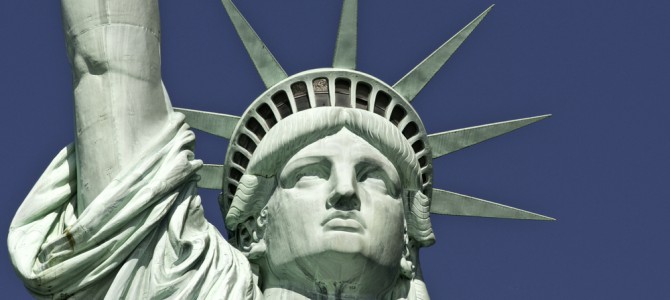Over the last week and a half, leaders of nations, dignitaries, Hollywood actors, and flocks of ordinary people posted and tweeted “Je suis Charlie” pins and posters. The “Je Suis Charlie” campaign attracted praise and ire; pundits and writers voiced their opinions in favor and against the slogan and its hashtag version. Fierce arguments broke out over its meaning, use, and potency. But one thing was certain: no American who “suis Charlie” feared arrest or government persecution. Why?
We are a country built on the understanding that freedom of speech is sacrosanct. We are built on the idea that differences in opinion are to be expressed, celebrated, and protected—not merely tolerated—by our government. We are built on the passionate defense of the right to disagree. We have opinions and we expect to retain our liberty when we express them. We don’t get arrested.
The Origins of Religious Liberty in America
We owe this to the genius of our founding fathers. They knew that a free and vibrant America must emerge from the grit and perseverance of principled citizens living according to their deeply held convictions. They understood that respectful disagreement—true civil discourse—would not weaken our nation. On the contrary, they rightly believed that it would strengthen it.
Our founders knew that a nation shackled with an established religion would not allow for such discourse. When Thomas Jefferson drafted the Virginia Statute for Religious Freedom, it was to guarantee free religious exercise for all and disestablish the Church of England as the official state religion. The statute promised “that all men shall be free to profess, and by argument to maintain, their opinion in matters of religion, and that the same shall in no wise diminish, enlarge, or affect their civil capacities.”
The principle was so radical that it took seven years for the statute to pass in the Virginia Assembly. First introduced in 1779, it wasn’t until January 16, 1786 that the Virginia Statute for Religious Freedom became law. It later provided the basis for our national Constitution’s protection of religious freedom.
It remains contentious now. Although religious freedom is fundamental to all human freedoms, although it encompasses freedom of thought, freedom of expression, and freedom of association, it is often treated like the eccentric uncle of the human-rights family. Its importance is often pushed aside in favor of more “rational” interests.
Religious Liberty Under Siege
Take the recent attempts to subjugate religious liberty rights to others, like sexual identity and reproductive rights. Across the nation, religious university groups are denied funding formerly granted to them for requiring their leaders to adhere to certain codes of conduct. Individuals, employers, and families are vilified for questioning a mandate that would force them into a market of drugs and devices that violate their most deeply held beliefs.
These “rational” rights are powerful moral and ethical issues that demand rigorous debate and discussion. But religious liberty is not something we must discard to allow for that debate—rather, is the very primacy of religious liberty that guarantees this free and open discourse.
Religious liberty should not be a tool of political debate. When we politicize it, we weaponize it. We turn it into a tool for citizens to use against each other, instead of maintaining its intended purpose: to ensure that freedom and civil discourse thrive.
Freedom to Think, Freedom to Persuade
This freedom comes with the knowledge that we will sometimes be faced with sentiments that we find distasteful or offensive. When that happens, the answer is not to eliminate others’ speech but to persist in our own. As John Milton expressed it, we should trust that truth will win out, “[t]hough all the winds of doctrine were let loose to play on the earth.”
Protecting free discourse gave Jefferson great pride. Before his death, he left explicit instructions regarding the epitaph on his tomb. It was to include his three major accomplishments: the Declaration of Independence, the Virginia Statute for Religious Freedom, and the founding of the University of Virginia. Jefferson did not expect the entire state of Virginia to shift from the Church of England to some other uniform moral opinion. He fully expected a variety of opinions—religious and otherwise—to circulate in the state and the country.
This is what we need to expect, and indeed to love, about our country. We must protect the fundamental freedom that underlies all others and makes that plurality of opinion possible.
If “je suis Charlie,” then “je suis” the countless Americans who express their beliefs every day in the face of bullying political correctness. “Je suis” the Americans who find their religious freedom curtailed by misguided attempts to make our nation one of uniform opinion.









